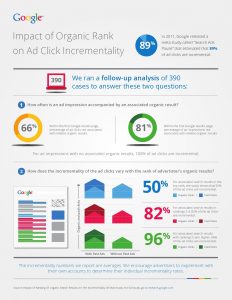
Search engines provide an essential starting point for anyone searching online. Search engines scour the internet in order to interpret it and return results that meet a user’s search query.
There are various strategies you can employ to boost the SEO of your site, but this article will outline two of the key ones – including using keywords in content creation and structuring data.
Keywords
Search engines are the primary way that users navigate the internet. Search engines scour all pages that match a query, then rank their results by relevance to that search query. As search engine rankings rise with each subsequent ranking of pages relevant to one, more traffic flows towards them. One effective strategy to increase website’s search engine visibility is optimizing it with keyword targeting techniques.
When selecting keywords, it is essential that you consider their search volume and competition level as well as their context and intent rather than simply words on a page. Search engines take this into consideration when ranking pages containing specific words.
Google’s Keyword Planner, available free through AdWords, is an excellent way of discovering keywords. While designed primarily for use with paid advertisements, SEOs may also use this tool effectively. It displays related searches along with their average monthly search volumes as well as providing you with a list of related searches and their respective volumes.
On-page optimization
Search engine optimization (SEO) is an essential strategy for expanding any small business. SEO works by optimizing a website to increase its relevance and visibility in search results through on-page and off-page SEO techniques such as keyword research, title tags, meta descriptions, internal linking and unique and pertinent content creation.
This may involve placing keywords in the title tag, using long-tail keyword phrases in your meta description and including synonyms or variations of key terms throughout the text. But it’s important to avoid keyword stuffing since that will hurt your rankings.
Headings are another essential on-page SEO factor, helping Google understand the hierarchy of your pages while making it easier for visitors to scan the page and locate their needs. Furthermore, SEOs use headings as an effective method to reduce duplicate content – especially useful on large sites with many pages.
Off-page optimization
For your pages to rank highly, a combination of on-page and off-page optimization is required. Off-page activities involve activities outside your website such as building links and being mentioned elsewhere online.
Off-page SEO strategies should aim at earning natural, high-quality links from authoritative sources. A quality link establishes trust and authority with users while poor-quality ones could hinder ranking efforts.
Content marketing is one of the key off-page SEO tactics, which involves producing and distributing compelling material in order to secure links from other websites. This could involve sending research or data directly to media outlets or releasing an infographic with relevant data sets that others might find useful.
Unlinked mentions, or when other sites reference your brand without linking back to you website, should also be considered important indicators of online reputation. Such mentions show how influential other websites may be.
Link building
Link building is an essential element of search engine optimization, creating a network of links across pages in order to demonstrate relevance to Google. The more links a page has, the higher it will rank. But this metric alone does not fully assess relevance: Google also considers quality when judging whether or not a page is pertinent.
One of the best ways to build links is through guest blogging on other industry-related websites. Not only will this help expand brand reach, but guest blogging on these sites provides an excellent opportunity to acquire high-quality backlinks – something SEO cannot live without!
Utilise services like HARO to manually locate broken links on industry websites. While this approach might take more time and effort than using influencers to spread your content via social media or email lists, it has proven very successful over time.







